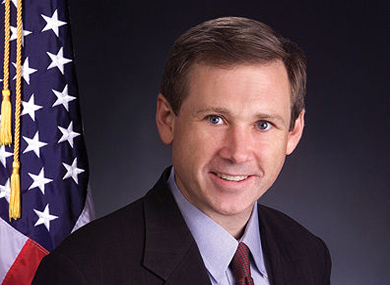Mark Kirk Reverses Course On Job Bill
By Kevin Robinson in News on Aug 11, 2010 2:20PM
 It seems like he might be. That's because yesterday Congress sent a $26 billion jobs bill to President Obama's desk in an emergency session, passing the House on a 247-to-161 vote, largely along party lines. The bill, which provides funding to help avoid teacher layoffs while also funding positions for police, firefighters and nurses nationally, includes $10 billion for teacher positions and $16 billion to help cover state Medicaid payments. Kirk had said as recently as Monday that he would support the bill. “I'm inclined to vote for that legislation,” Kirk told the Sun-Times. “As a Republican moderate, my view is we should not add to the deficit. This legislation does make a number of cuts. ... that make it deficit-neutral. And it would keep teachers in the classroom.”
It seems like he might be. That's because yesterday Congress sent a $26 billion jobs bill to President Obama's desk in an emergency session, passing the House on a 247-to-161 vote, largely along party lines. The bill, which provides funding to help avoid teacher layoffs while also funding positions for police, firefighters and nurses nationally, includes $10 billion for teacher positions and $16 billion to help cover state Medicaid payments. Kirk had said as recently as Monday that he would support the bill. “I'm inclined to vote for that legislation,” Kirk told the Sun-Times. “As a Republican moderate, my view is we should not add to the deficit. This legislation does make a number of cuts. ... that make it deficit-neutral. And it would keep teachers in the classroom.”
But when it came time to vote in Washington, Kirk did a 180, voting instead against the bill. “When I returned to Washington for this special session, I read [Senate] Leader Reid’s bill and found it spent more, taxed more and borrowed more than any of the past bills I supported,” Kirk said in a written statement. “I did not support the Reid bill because it added $16 billion in new Medicaid spending and levied another $9 billion in new, permanent tax increases. According to the non-partisan Congressional Budget Office, the bill adds over $12 billion to our deficit. As a fiscal conservative, I could not support this bill and will work to cut spending, taxing and borrowing in this and future Congresses.” Despite the GOP's $12 billion claim, Dems insist it will actually cut the deficit by $1.4 billion. In fact, the bill cuts payments to the food stamps program for poor families while closing some tax loopholes on companies that do business overseas. The bill also keeps teachers in classrooms and covers Medicaid payments in the states. That funding frees states up to continue employee police, fire and other emergency responders.